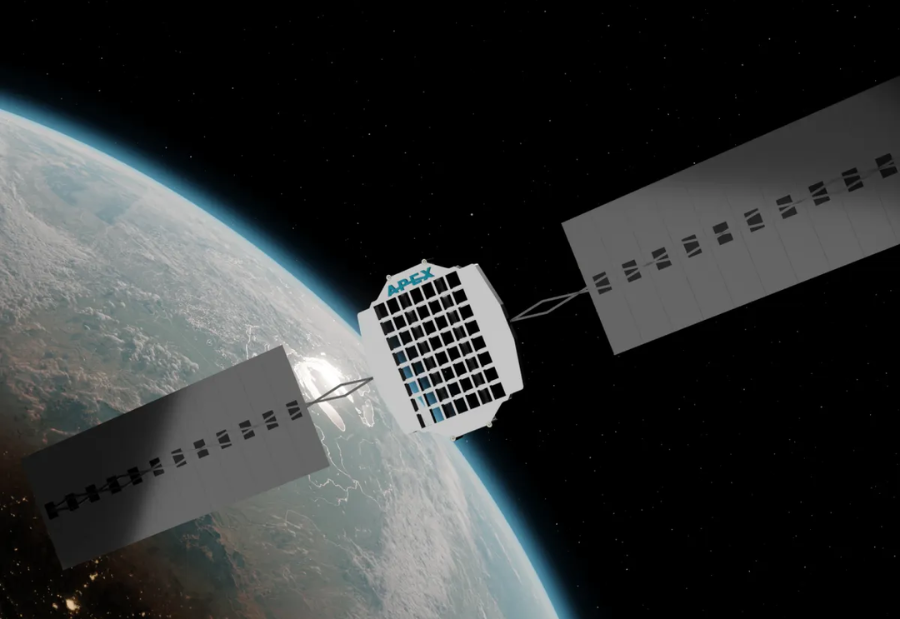Satellite manufacturer Apex has raised $200 million in its latest funding round, pushing the company’s valuation beyond $1 billion. The Series D round, announced on September 12, was led by Interlagos, a venture capital firm founded by former SpaceX employees. Apex did not disclose an exact valuation figure.
This development comes less than five months after Apex secured another $200 million in a Series C round. According to the company, the Series D round was also opportunistic, with investors approaching Apex with fresh capital.
“We didn’t need the capital. We’re in a very strong position,” said Ian Cinnamon, chief executive of Apex. He added that Interlagos, which had already invested a smaller amount in Apex, proposed expanding its stake about a month ago. The offer, he said, provided the chance to “supercharge” opportunities in building commercial and defence satellite constellations. “That is really what made us say yes, and it came together literally overnight.”
Achal Upadhyaya, founder and chief executive of Interlagos, highlighted the potential of the partnership, saying, “Apex is accelerating one of the most important shifts in the space industry today by architecting a solution for customers building modern, proliferated constellations. Apex’s focus on production rate and scale is critical for both national security missions and high performance commercial constellations.”
The funding milestone comes exactly three years after Apex was founded, making it one of the fastest space companies to achieve unicorn status. Apex plans to use the fresh capital to expand production of its satellite bus lines. The company has leased a second facility next to its existing Factory One in Los Angeles, expected to open next year. This expansion will more than double its current space and increase production capacity by 50 percent, from 12 to 18 satellite buses per month. The additional facility will also handle mission integration activities and component manufacturing.
Cinnamon explained that vertical integration is central to Apex’s growth strategy. Initially, the company sourced most of its components from suppliers. However, with rising demand, Apex has increasingly begun to manufacture key parts in-house. As part of this push, Apex has acquired Hall Effect thruster technology from Phase Four, a propulsion manufacturer based in Southern California. The acquisition includes both personnel and hardware, strengthening Apex’s technical capabilities.
“As we’ve been buying systems, having the expertise in the team to make sure those systems work really well and flawlessly eventually leads to a pathway where we can vertically integrate them,” Cinnamon said.
While Cinnamon pointed to the Golden Dome missile defence system as a “growing and major” opportunity, he also noted strong interest from both commercial and government customers. Apex currently offers three satellite bus lines, including its latest model, Comet, designed for constellation deployments.
Though Apex has revealed limited details about its customer base, Cinnamon confirmed that the company’s production is fully booked for this year, with additional slots already added for next year. “We have buses sold all the way through the end of ’27 and into ’28 as well,” he said.
So far, Apex has delivered “a bit over half a dozen” satellites and continues to operate its first satellite, called “Call to Adventure,” launched 18 months ago.
Also read: Viksit Workforce for a Viksit Bharat
Do Follow: The Mainstream formerly known as CIO News LinkedIn Account | The Mainstream formerly known as CIO News Facebook | The Mainstream formerly known as CIO News Youtube | The Mainstream formerly known as CIO News Twitter |The Mainstream formerly known as CIO News Whatsapp Channel | The Mainstream formerly known as CIO News Instagram
About us:
The Mainstream formerly known as CIO News is a premier platform dedicated to delivering latest news, updates, and insights from the tech industry. With its strong foundation of intellectual property and thought leadership, the platform is well-positioned to stay ahead of the curve and lead conversations about how technology shapes our world. From its early days as CIO News to its rebranding as The Mainstream on November 28, 2024, it has been expanding its global reach, targeting key markets in the Middle East & Africa, ASEAN, the USA, and the UK. The Mainstream is a vision to put technology at the center of every conversation, inspiring professionals and organizations to embrace the future of tech.




